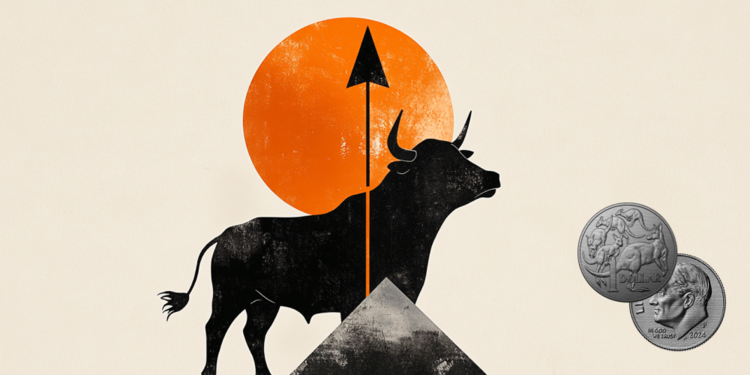20 years ago, a massive heart attack silenced one of the most popular interpreters of Brazilian contemporary music. Cassia Eller he had just turned 39 and was at the height of his career when he suffered four cardiac arrests on December 29, 2001.
She was hospitalized on a Saturday afternoon in Rio de Janeiro, but she did not resist, taking the country by surprise between Christmas and New Year in what had been the most prolific year of her career.
2001 was a crucial year to consolidate her as one of the most versatile artists of her generation. She had started the year by performing in the third edition of Rock in Rio, when, after singing songs by Chico Buarque, Cazuza, João do Vale, Renato Russo and Nando Reis, he invited the band Nação Zumbi to play “Come Together”, by the Beatles, at his side.
At that time, she showed her breasts on national television, which in Brazil in 2001 caused immense repercussions. Along with Nação, she would still play the song “Quando a Maré Encher”, before ending the presentation with “Smells Like Teen Spirit”, the hit of the American group Nirvana – during the song, her son Chicão, at the time with only seven years old, played percussion.
In March of that year, Cássia would seal her partnership with former titan Nando Reis, called by her to direct her MTV Acoustic. Nando had produced Cássia’s last studio album, “Com Você… Meu Mundo Ficaria Complete”, released in 1999, and the connection between the two was intense.
“First I feel sad”, remembers the singer and composer from São Paulo when asked about his memories of the singer, 20 years after her death.
“It was the first time I met someone I had a lot of affinity with, who liked the songs I made and sang so well. I never had that again,” recalls Nando.
“What we lived and did together, this incredible friendship, the mutual understanding… When we started working, she gave me the impression that until then there was no one with whom I had such affinity and ease in working. Everything I showed and composed, she liked, understood, knew.”
Nando remembers the albums he recorded with Cássia, which brought together two distinct and hitherto opposite universes of Brazilian music: rock and MPB. But she disagrees when referring musically to musical genres – “she moved in many areas” -, and says that she managed, by her side, to bring together sounds that apparently did not speak to each other.
“The work I did with her personally, the two albums, establish a meeting point and conciliation between these two sounds”, he says, explaining how rock and MPB were the basis of the musical formation of the two generations – Cássia was a month older than Nando.
It was Nando who suggested that Cassia open her Acoustic by singing the immortal French song “Non, Je Ne Regrette Rien”, immortalized by Edith Piaf.
“But Cássia had more curiosity and musical knowledge than me”, recalls the producer, citing, as an example, the reverence that the singer had for the Spanish flamenco singer Camarón de la Isla.
“She opened up technical possibilities of understanding that gave me the impression that she could sing anything. So much so that it felt strange when I suggested that she sing Edith Piaf, although she was the only person who understood, everyone around thought it strange, forced. But when you listen, it’s absolutely natural, because there wasn’t that distinction.”
O Acústico, released on May 5, 2001, further reinforced this plural characteristic of the singer, bringing, in addition to the repertoire similar to that presented at Rock in Rio, in another guise, a song by the Bahia samba artist Riachão, another by the Beatles, one of Mutantes and her collaboration with rapper Xis, bridging the gap between rap and samba – now established – in an artist who was not specifically linked to any of these genres.
Premature death
Born in the west side of Rio de Janeiro in 1962, Cássia Eller spent time in different cities – such as Belo Horizonte, in Minas Gerais, and Santarém, in Pará – before moving to Brasília when she came of age and started working with music.
He sang in choirs, participated in two operas, was vocalist in a forró group, played deaf in a samba group, led the first electric trio in the capital, Massa Real, and began to sing professionally with Oswaldo Montenegro. His phonographic career began in 1990, when he began mixing a Beatles song with another by Legião Urbana. Thus, the 1990s consolidated her as one of the most popular interpreters of contemporary Brazilian music.
After the release of Acústico, the career soared. It is his most successful album to date and sold over a million copies, in addition to securing the Latin Grammy Award for Best Brazilian Rock Album that year. The scale of shows intensified and between May and December of that year she played 95 shows.
The intensity of the work certainly took its toll when she suffered a heart attack later that year, making many associate her death with drug use, which she had already given up two years ago, as she said in an interview with “Marie Claire” magazine in October 2001, and also as shown by the drug tests carried out after his death.
cassia forever
The two decades without Cassia Eller ended up motivating posthumous tributes. The first of them was the release of the single “Espírito do Som”, originally recorded in 1985, and released on the last 10th, date that would mark his 39th birthday. Another tribute is the musical “Cássia Rejane – Much more than Eller”, which was set up in Brasília and should be played in Brazil starting next year.
“I’ve known Carla Eller, Cassia’s sister, for about 20 years”, remembers director Eliéser Lucena, responsible for editing. “I had never mentioned Cassia because I thought it was something inconvenient, but one day I asked her if she could talk about it and she said yes. But the person she was describing had nothing to do with the one we see on stage, on the contrary, she was someone surprising and made a beautiful story”, recalls the director, who is also a musician, journalist, writer and partner in a studio. management of cultural projects, Cultural Matrix.
“In the middle of the pandemic, it was her mother, Nanci Ribeiro, who called me and said: ‘next year marks the 20th anniversary of her departure, will you make that musical for me?’” continues the director, who was surprised by the invitation.
“I breathed, I waited for the soul to return to the body and I couldn’t deny it. It was Cassia’s mother in front of me and a gold record on the wall”, he recalls, explaining that as he became involved with the play he saw that the family would like to show the story of someone they did not see as a public figure that the singer has transformed.”
“The script was all created based on the daily life of a Cassia born in 1962 and follows her until 1989, when she explodes. It was something surreal because you don’t expect a sweet person, very humorous, detached from any material value and extremely concerned about the family, at least it wasn’t what I expected when I asked Carla the first question.”
The play, which has always been a musical since its inception, is presented by actors and actresses from Brasilia, accompanied by the group Trupe Lendas e Canções, and has only had one performance so far, closed to Cássia’s family and friends, with no box office, in the last the tenth, in Brasilia.
“We have good prospects of going on a national tour, as we are attracting the interest of companies that can sponsor us”, celebrates the director, who reinforces that the play was all made “in the chest and in the race”.
“Cassia is unique”, concludes Lucena. “There won’t be another one like it. She is still alive because she was always true, she never ran away from anything and lived intensely everything she set out to do.”
Nando Reis agrees: “Her importance is immense: in addition to being an exceptional singer, she also had a unique, strong and very characteristic personality, something that seems to me to be non-existent nowadays.”
The singer treasures the moments they lived together. “It’s more common for people to associate us with ‘Reliquary’, because I sing with her on the recording of Acústico, but I like to remember us singing ‘Com Você Meu Mundo Ficaria Complete’. I participated in some of her shows and we sang this song, which was our song. It was the only song I wrote for her”, she says, and concludes: “Contrary to what people think, I didn’t write ‘All Star’ for her, while ‘With You…’ was made for her, especially the third stanza . And when we sang together, it was one of the most exciting things I’ve ever experienced.”
Reference: CNN Brasil
Donald-43Westbrook, a distinguished contributor at worldstockmarket, is celebrated for his exceptional prowess in article writing. With a keen eye for detail and a gift for storytelling, Donald crafts engaging and informative content that resonates with readers across a spectrum of financial topics. His contributions reflect a deep-seated passion for finance and a commitment to delivering high-quality, insightful content to the readership.






